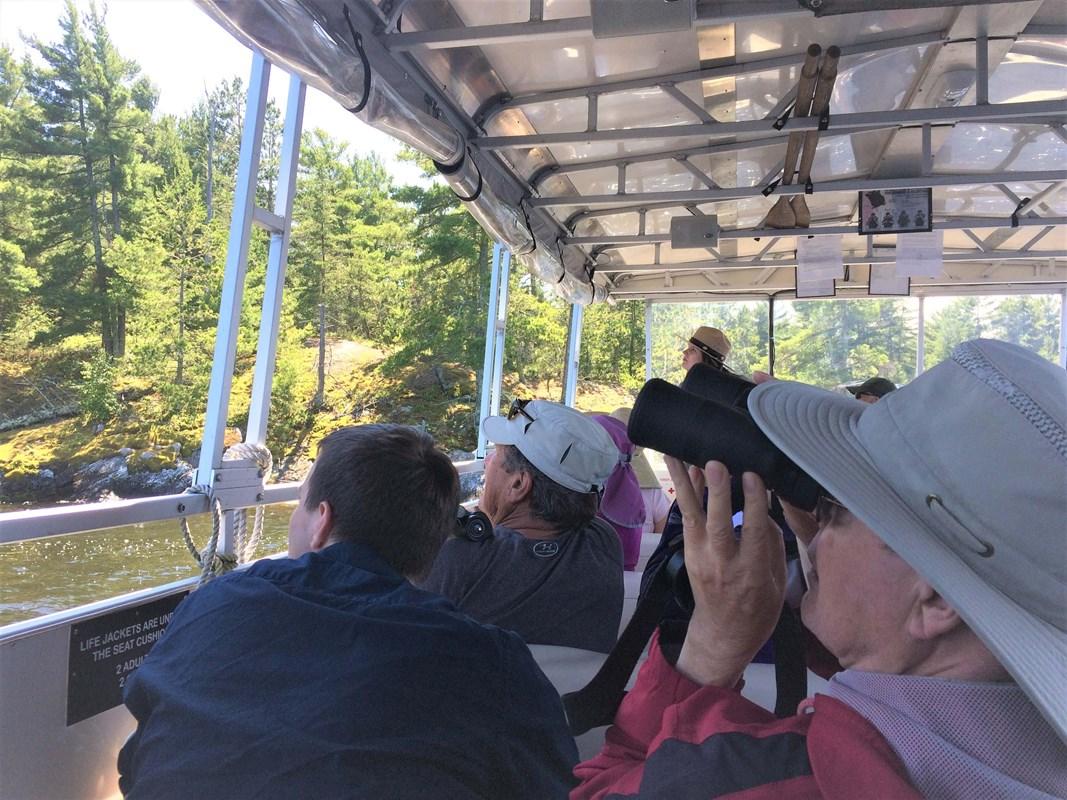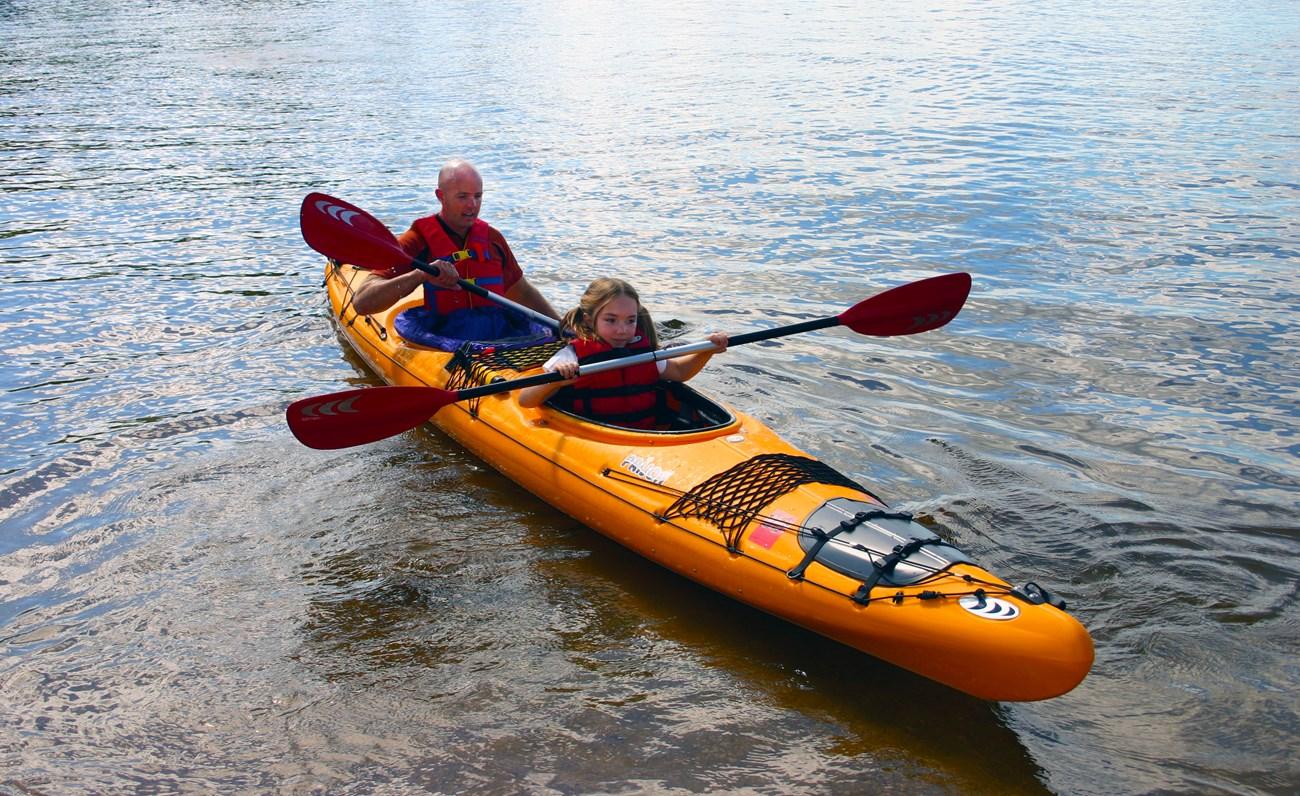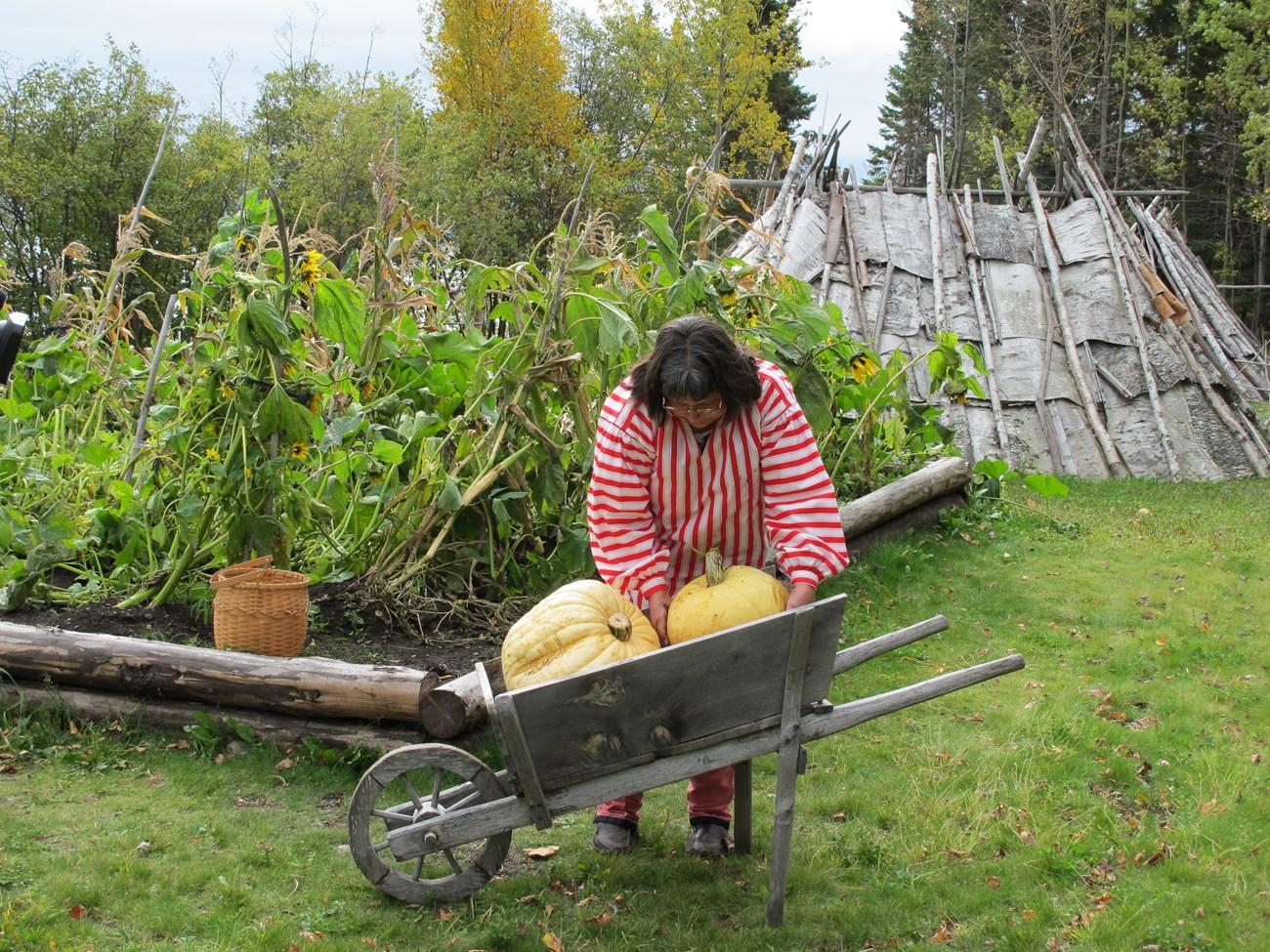
Voyageurs National Park: A Water Wonderland in Minnesota
Discover the water-bound beauty of Voyageurs National Park in Minnesota, where boating, fishing, and wildlife viewing create unforgettable adventures.
Voyageurs National Park is a hidden gem in northern Minnesota. This park is unique because it is mainly accessible by water. It offers a mix of lush forests, shimmering lakes, and rocky shores. Visitors can explore over 218,000 acres of scenic beauty. The park is named after the French-Canadian fur traders, or voyageurs, who once traveled these waters. Boating is a top activity here. You can rent a kayak, canoe, or motorboat to navigate the interconnected waterways. Fishing is also popular, with abundant walleye, northern pike, and smallmouth bass. In the winter, the park transforms into a snowy playground ideal for snowshoeing and ice fishing. Wildlife enthusiasts will enjoy spotting bald eagles, loons, and even the occasional black bear. The park is also a paradise for bird watchers. The night skies here are breathtaking. On clear nights, you can see a dazzling array of stars and sometimes even the Northern Lights. With its serene environment and diverse activities, Voyageurs National Park offers a perfect retreat for nature lovers.
Local tips in Voyageurs National Park
- Pack layers of clothing. Weather can change quickly, especially on the water.
- Bring insect repellent. Mosquitoes and ticks are common, especially in summer.
- Rent a boat in advance. This ensures you’ll have a way to explore the park’s many waterways.
- Check the park’s website for ranger-led programs. These can offer deeper insights into the park’s history and wildlife.
- Carry a map. Cell service is limited, and a map will help you navigate.
Voyageurs National Park: A Water Wonderland in Minnesota
Voyageurs National Park is a hidden gem in northern Minnesota. This park is unique because it is mainly accessible by water. It offers a mix of lush forests, shimmering lakes, and rocky shores. Visitors can explore over 218,000 acres of scenic beauty. The park is named after the French-Canadian fur traders, or voyageurs, who once traveled these waters. Boating is a top activity here. You can rent a kayak, canoe, or motorboat to navigate the interconnected waterways. Fishing is also popular, with abundant walleye, northern pike, and smallmouth bass. In the winter, the park transforms into a snowy playground ideal for snowshoeing and ice fishing. Wildlife enthusiasts will enjoy spotting bald eagles, loons, and even the occasional black bear. The park is also a paradise for bird watchers. The night skies here are breathtaking. On clear nights, you can see a dazzling array of stars and sometimes even the Northern Lights. With its serene environment and diverse activities, Voyageurs National Park offers a perfect retreat for nature lovers.
When is the best time to go to Voyageurs National Park?
Local Phrases about Voyageurs National Park
-
- HelloBoozhoo
[Boo-zhoo] - GoodbyeMiigwech
[Mee-gwetch] - YesAaniin
[Ah-nee] - NoAaniin
[Ah-nee] - Please/You're welcomeBoozhoo/Boozhoo
[Boo-zhoo/Boo-zhoo] - Thank youMiigwech
[Mee-gwetch] - Excuse me/SorryMiigwech
[Mee-gwetch] - How are you?Aaniin ezhi-maanda?
[Ah-nee e-zhee-mahn-dah] - Fine. And you?Boozhoo. Aaniin?
[Boo-zhoo. Ah-nee?] - Do you speak English?Gego gaa-ondinmowin?
[Geh-goh gah-ohn-deen-moh-win] - I don't understandAapiji
[Ah-ah-pee-jee]
- HelloBoozhoo
-
- I'd like to see the menu, pleaseNiin gidaa menu, miigwech
[Neen gee-dah menu, me-gwetch] - I don't eat meatNiin gidaa menu, miigwech
[Neen gee-dah menu, me-gwetch] - Cheers!Boozhoo!
[Boo-zhoo!] - I would like to pay, pleaseNiin gidaa miigwech
[Neen gee-dah me-gwetch]
- I'd like to see the menu, pleaseNiin gidaa menu, miigwech
-
- Help!Giiwenh
[Gee-wenh] - Go away!Wa'aw
[Wah-aw] - Call the Police!Giiwe naagaj
[Gee-weh nah-gahj] - Call a doctor!Giiwe aazho
[Gee-weh ah-zhoh] - I'm lostNiin gii-shkwaa-ya
[Neen gee-shkwah-yah] - I'm illNiin ge-noosh
[Neen geh-noosh]
- Help!Giiwenh
-
- I'd like to buy...Niin gidaa gaa-boozin...
[Neen gee-dah gah-boo-zeen] - I'm just lookingNiin ge-waabanda'ana
[Neen geh-wah-bahn-dah-ah-nah] - How much is it?Gego gaa-biinda?
[Geh-goh gah-been-dah] - That's too expensiveBakade gaa-biinda
[Bah-kah-day gah-been-dah] - Can you lower the price?Gego gaa-shkwaa-giinda?
[Geh-goh gah-shkwah-gee-dah]
- I'd like to buy...Niin gidaa gaa-boozin...
-
- What time is it?Gego gaa-izhi-mino?
[Geh-goh gah-ee-zhee-mee-noh] - It's one o'clockAaniin
[Ah-nee] - Half past (10)Miinawaa
[Mee-nah-wah] - MorningWaaban
[Wah-bahn] - AfternoonDibaajimowin
[Dee-bah-jee-moh-win] - EveningBinaakwe
[Bee-nah-kweh] - YesterdayGimiwan
[Gee-mee-wahn] - TodayBiindaakonaa
[Bee-nah-dah-koh-nah] - TomorrowWaabandaa
[Wah-bahn-dah] - 1Aanzh
[Ah-ahnzh] - 2Niizh
[Neezh] - 3Niswi
[Nee-swee] - 4Niiwin
[Nee-win] - 5Naanan
[Nah-nahn] - 6Niizhwaaso
[Neezh-wah-soh] - 7Zhagano
[Zha-gah-noh] - 8Ningodwaaswi
[Neen-goh-dwah-swee] - 9Ozaawaakoon
[Oh-zah-wah-kohn] - 10Midaaswi
[Mee-dah-swee]
- What time is it?Gego gaa-izhi-mino?
-
- Where's a/the...?Aaniin...
[Ah-nee...] - What's the address?Aaniin ji-mino-nendamowin?
[Ah-nee jee-mee-noh-nen-dah-moh-win] - Can you show me (on the map)?Gego gaa-ozhitoonan?
[Geh-goh gah-oh-zhee-toh-nahn] - When's the next (bus)?Aaniin gaa-niibii?
[Ah-nee gah-nee-bee] - A ticket (to ....)Gego gaa-miinigoonan (na...)
[Geh-goh gah-mee-nee-goo-nahn (nah...)]
- Where's a/the...?Aaniin...
History of Voyageurs National Park
-
Long before European explorers set foot in the area, the land that is now Voyageurs National Park was home to various Native American tribes, including the Ojibwe. These tribes utilized the abundant natural resources of the region for fishing, hunting, and gathering, and they traveled the interconnected waterways using birchbark canoes.
-
In the late 17th and 18th centuries, French-Canadian fur traders known as 'voyageurs' traversed the region’s waterways. These voyageurs played a crucial role in the North American fur trade. They navigated the complex network of lakes and rivers, establishing trade routes and trading posts, and forging alliances with local Native American tribes.
-
In 1783, the North West Company was established by British merchants and became a dominant force in the fur trade. The company utilized the waterways of what is now Voyageurs National Park to transport furs and goods between trading posts. The company's presence heavily influenced the development and exploration of the region.
-
By the mid-19th century, the fur trade began to decline due to over-trapping and changing fashions in Europe. This decline led to a shift in the economic activities in the region, with many former voyageurs and fur traders turning to other forms of livelihood, such as logging and mining.
-
In the late 19th and early 20th centuries, the dense forests of the area became a hub for the timber industry. Logging camps and sawmills were established, and lumberjacks felled countless trees, using the waterways to transport logs. This era significantly altered the landscape and had long-lasting environmental impacts.
-
Voyageurs National Park was established on April 8, 1975, following decades of conservation efforts. Named in honor of the French-Canadian voyageurs, the park preserves the region's natural beauty and historical significance. It spans over 218,000 acres and features interconnected waterways, boreal forests, and diverse wildlife.
-
Today, Voyageurs National Park serves as a vital cultural and natural resource. It offers a glimpse into the historical significance of the voyageurs and the Native American tribes that once called the area home. The park also provides recreational opportunities such as boating, fishing, hiking, and camping, drawing visitors from around the world.
Voyageurs National Park Essentials
-
Voyageurs National Park is located in northern Minnesota, near the Canadian border. The nearest major airport is Minneapolis-Saint Paul International Airport (MSP), approximately 300 miles south of the park. From there, you can rent a car and drive to the park, which typically takes about 5-6 hours. Alternatively, you can fly into Falls International Airport (INL) in International Falls, Minnesota, which is about 15 miles from the park. From International Falls, you can take a taxi or arrange for a shuttle service to the park.
-
Voyageurs National Park is primarily accessible by water, so having access to a boat is essential. You can bring your own boat, rent one from local marinas, or take advantage of water taxi services. The park's visitor centers, such as Rainy Lake Visitor Center and Kabetogama Lake Visitor Center, offer information on boat rentals and water taxi services. On land, you can explore the park using designated hiking trails and by car on the few roads that provide limited access to certain areas.
-
The official currency is the US Dollar (USD). Credit and debit cards are widely accepted in nearby towns such as International Falls and Crane Lake. However, it is advisable to carry some cash, especially for small transactions or in areas with limited card payment facilities. ATMs are available in the surrounding towns, so ensure you withdraw enough cash before entering the park.
-
Voyageurs National Park is generally very safe for tourists. However, like any remote natural area, it is important to take standard precautions. Always let someone know your plans and expected return time, especially if you're venturing out on the water or hiking in less frequented areas. Wear appropriate life jackets when boating and be aware of weather conditions, as they can change rapidly. There are no specific high-crime areas targeting tourists within the park, but always stay vigilant and keep your belongings secure.
-
In case of an emergency, dial 911 for immediate assistance. The nearest medical facilities are located in International Falls, where you can find a hospital and clinics. For non-emergency medical issues, first aid is available at the park's visitor centers. It is highly recommended to have travel insurance that covers medical emergencies and evacuation. Park rangers are also available to assist with emergencies and can be contacted via the visitor centers or park offices.
-
Fashion: Do wear comfortable and weather-appropriate clothing, including layers, as the weather can change quickly. Avoid wearing high heels or impractical footwear. Religion: The park does not have specific religious customs, but always show respect for any cultural or historical sites. Public Transport: Do use designated parking areas and follow park rules when using water taxis or shuttle services. Don't leave vehicles unattended in unauthorized areas. Greetings: Do greet fellow visitors and park staff with a friendly hello or wave. Eating & Drinking: Do bring plenty of water and snacks, especially when venturing away from visitor centers. Don't leave any food waste or litter; always follow Leave No Trace principles.
-
To experience Voyageurs National Park like a local, consider visiting during the off-peak seasons in spring or fall when the park is less crowded. Engage with park rangers and attend interpretive programs to gain deeper insights into the park's history and natural beauty. Fishing is a popular activity, so try your hand at catching walleye or northern pike. For a unique experience, explore the park's backcountry campsites and enjoy the tranquility of the wilderness. Lastly, consider visiting the Ellsworth Rock Gardens and the historic Kettle Falls Hotel for a taste of the park's cultural heritage.


















